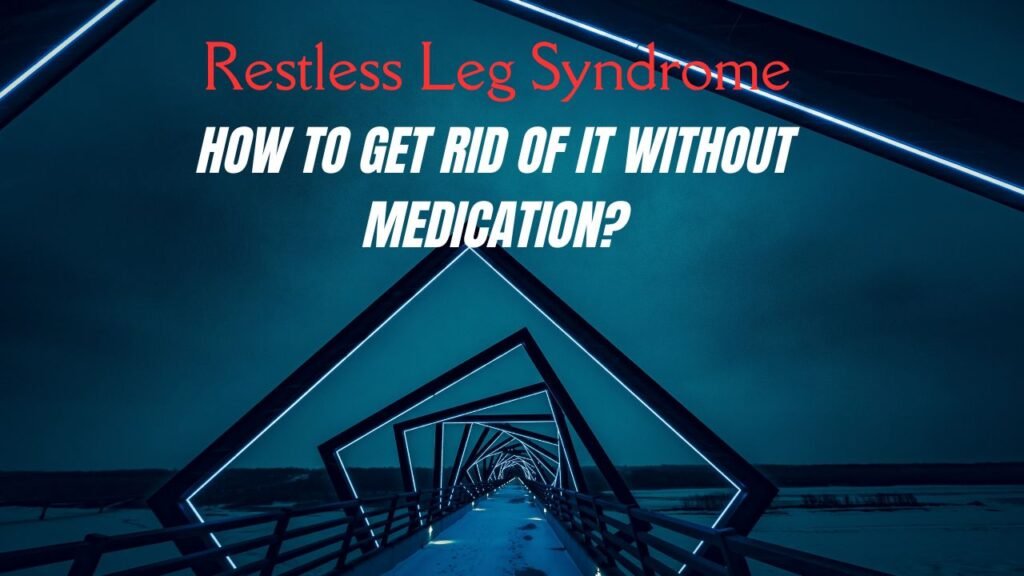Table of Contents
Introduction
Insomnia: We all have those nights when sleep just doesn’t happen and your mind is so busy and the clock keeps taunting you with every ticking sound. You wriggle, you roll, you count sheep nothing works.
The thoughts, worries, and the stress, start racing around the mind and before you know it.
it’s morning and you’re still awake. For millions of individuals, insomnia is not simply an occasional event, but a chronic condition impacting their well-being, their disposition and their daily life.
There are different patterns of insomnia. They’re having trouble getting to sleep, or waking up too early and not falling back to sleep. No matter which type of insomnia you deal with, the devastation of your mental as well as the physical health caused is beyond comparison.
So if you’ve exhausted every option from sleep medications through the lifestyle changes with little relief, you’re likely thinking if there’s a natural approach to enhance your sleep.
In this post, we will discover how insomnia and mindfulness meditation are related. We will go over what insomnia is, how it impacts a sleep, and how mindfulness meditation can be the magic wand to fix sleep and shatter the cycle of sleeplessness.
If you’ve been suffering from insomnia or just seeking for a more natural solution, this blog will assist you to understand how mindfulness meditation might just transform your relationship with sleep.
What is Insomnia?

Insomnia is a sleep disorder commonly defined as trouble falling asleep, staying asleep, or waking up too early and not being able to return to sleep. While this can happen after a stressful day or event, chronic insomnia means you have trouble sleeping at the very least three nights per week for at least three months.
Insomnia comes in two types:
Acute Insomnia (i.e., our first type):includes recent or short-term stressors like losing a job, a break-up, or worrying before a big test. Acute sleep troubles progresses from a period of some days or weeks.
Chronic Insomnia: A more long-lasting disorder (continuing for months or many years). Chronic insomnia frequently co-exists with other health problems like anxiety, depression, or chronic pain.
Symptoms of insomnia include
Having trouble getting to sleep during the night
Waking up many times at night and unable to sleep again
Waking mornings and not being rested
Fatigue during the day, mood swings, irritability and concentration issues
The Negative Health Impact of Insomnia
Insomnia might seem like a mere nuisance, but it takes real toll on your mind and body. Inadequate sleep reduces your bodys ability to heal, and the level of stress hormone cortisol can go up him a series of negative impact. The following are some of the impacts insomnia has on your health:
Impact on Mental Health
Anxiety and depression are mental health disorders that are inextricably tied to chronic insomnia. Without restored sleep, your brain does not function well, leaving room for mood swings, irritability, and increased stress levels. Insomnia, in fact, has a bidirectional relationship with anxiety or depression: inability to sleep well often snowballs into anxiety or depression, and anxiety or depression only aggravates the insomnia.
Higher Vulnerability of Physical Health Issues
It is linked with a greater risk of heart disease, high blood pressure, diabetes, and a weakened immune system. Your body heals and restores itself in its sleep, so not getting enough sleep makes it harder to maintain optimal health.
Decreased Cognitive Function
Not getting enough sleep will absolutely impact your memory, attention and your problem-solving abilities. Not only this, but sleep deprivation also negatively affects brain function, making it harder to concentrate and do work-related activities at work or at school.
What Is Mindfulness Meditation
This is an awareness of your thoughts, emotions, body sensations, and surroundings an awareness that is without judgment.
Such type of meditation is great for bringing in self-awareness, acceptance and relaxation which makes it a great tool for dealing with stress and also improving the quality of sleep.
Key elements of mindfulness meditation are:

Breathing: This is to calm the nervous system and relax the body.
You listen to your body to feel where it is tense and should them relax them one by one.
Non-Judgmental Awareness of Thoughts: Rather than becoming consumed by worries or anxious thoughts, mindfulness shows you how to notice them and release them.
Acceptance: Accepting any sensations or emotions that arise without attempting to change them.
There are many ways to practice mindfulness: sitting, walking, even eating or washing dishes.
Benefits of Mindfulness Meditation for Insomnia
The question then comes, does it help to get rid of insomnia through mindfulness meditation? This isn’t a magic solution but it will certainly help with sleep quality and sleeping issues if used to tackle the basics of the cause of insomnia. This is how mindfulness meditation can assist with sleep:
Reducing Stress and Anxiety
Stress and anxiety are some of the underlying reasons for condition related to insomnia. If your mind is racing with worries or overactive thoughts, it can feel almost impossible to wind down long enough to fall asleep.
Successfully practicing mindfulness meditation helps abolish the stress response of the body, soothing the nervous system and helping you relax out of tension. Practicing mindfulness regularly enables you to know how to control your thoughts and anxieties so that you can sleep better at night.
Promoting Relaxation
The rest and digest response the parasympathetic nervous system to be precise is activated through mindfulness meditation. Because of those things, it lowers heart rate, blood pressure, and muscle tension which is the kind of way your body wants to be in order to sleep.
When you engage in mindfulness practices such as deep, deliberate breaths, body scanning, or anything with the intent to allow your body and mind to unwind prior to sleep, you are conveying to your body that its time to take a step back and relax.
They Help Us Break the Cycle of Insomnia
These patterns may include rumination, worry, and anxiety that make it impossible to sleep or stay asleep a vicious cycle that mindfulness meditation has been shown to help break.
This also happens to people who suffer from insomnia, who in the face of the difficulty in sleeping gain fear of sleeping and it becomes worse. Mindfulness allows you to receive the experience of not sleeping as it is, without judging it, which reduces the anxiety around sleep, making falling asleep without much difficulty.
Improving Sleep Quality
Mindfulness meditation has been proven to not only make you fall asleep easier but it can also enhance the quality of your rest. Research suggests that mindfulness practitioners experience less frequent night awakenings and wake more refreshed.
Mindfulness meditation calms the mind, leading to less disturbance and a deeper, more restorative sleep, which is why this is.
Mindful Sleep: Practical Strategies for Better Sleep

Here are some easy mindfulness meditation tips you can do to help you sleep better:
Focused Breathing
Find a comfortable position either sitting or lying down, close your eyes, and concentrate on your breath. Inhale deeply, taking your breath through your nose, gently hold, exhale slowly through the mouth. Keep breath by focusing on every small thing of air coming in, and out, from your body. If your mind starts to wander, then just refocus on your breath with gentleness.
Body Scan Meditation
The method is to mentally go through your body from head to toe, noting each place you feel tension. Notice tension, and allow your body to fully relax starting from your toes to your head, or vice versa. It helps release any physical tension, both by relaxing your body and signalling your body that it is time for sleep.
Progressive Muscle Relaxation (PMR)
Progressive Muscle Relaxation: A mindful practice in which you tense and relax your muscle groups, beginning at your toes and moving to the top of your head. It can assist you in letting go of any tension in your body and getting you into a very relaxed state so that you can have better sleep.
Guided Meditation
One way to settle your brain into a more relaxed state before bed is to listen to a guided meditation. There are many free apps and websites allowing you to listen to guided sleep meditations, where your attention is directed towards calming thoughts, away from the stresses of the day.
Conclusion
Mindfulness meditation will not cure your insomnia instantaneously, but over time, it can be a impactful way to enhance the quality of sleep.
Mindfulness meditation can help you get rid of insomnia naturally, as it reduces stress, promotes relaxation, and deals with some cognitive paths that make us sleepless.
With breathing exercises, body scans, or progressive muscle relaxation, you practice mindfulness that brings a peaceful, restful ambiance that will help you sleep faster and longer.
Mindfulness meditation is one trick to try if you find it hard to fall asleep. And with enough practice, it might be just the natural solution you need to finally achieve some healthy sleep.





